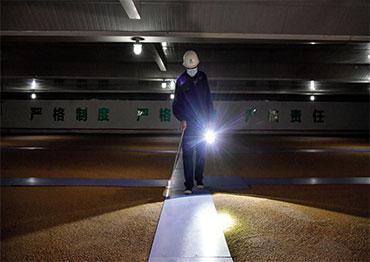Corruption in the restocking process involves selling old reserves for new ones. To ensure quality, the central government requires grain bureaus to purchase grain from farmers each year to replace old reserves in the granaries. The older grains are often auctioned back into the market.
“It’s important to note that not all old reserves are of poor quality. In fact, some grain may actually improve in quality over time. For example, wheat reaches its nutrient peak six months after harvest,” the professor said. The older grain can even be sold at a higher price than the original purchase price, generating profits for the reserve granaries. Additionally, the central government covers the cost of restocking the granaries, the professor said.
This facilitates corruption. The CCDI’s findings show that some granaries illegally profited and deceived the central government by faking restocks. They colluded with grain enterprises and falsified new stocks for old reserves sold to the enterprise, while claiming to purchase new grain. However, no new grain existed, and they covered this up by manipulating the numbers. The old reserves were actually delivered and kept at the grain enterprise for some time before they were returned to the granary, passed off as new. Some granaries skip these steps and simply fake invoices. The CCDI described such fraud as “grain laundering,” where the same batch of grain returns to its place of origin.
Another common form of corruption is falsifying reserve losses. The central government permits a maximum loss rate of 0.1 percent over six months due to natural causes like water evaporation. The government then reimburses these losses. However, many granaries have profited by inflating their loss rates.
“Just a 0.1 percent difference results in [reimbursements for] dozens of tons of grain to flow into individual’s pockets,” an insider told China Economic Weekly on condition of anonymity.
CCDI reports indicate that corrupt officials have also profited by inflating purchase prices or illegally selling old reserves without replenishing them, resulting in empty granaries.
Several officials involved in grain storage and reserve projects have been exposed for corruption. Zeng Guiliang, a former director of granaries in Guilin, Guangxi Zhuang Autonomous Region, was found to have illegally rented substandard granaries for storage and accepted bribes of more than 100,000 yuan (US$14,444) in a granary construction project.
Similarly, Wang Dongfeng, a former Party secretary and president of the Stateowned Shaanxi Food & Agriculture Group, reportedly took bribes of 6.75 million yuan (US$1m) in granary upgrades and reserverelated projects, while Hu Dongsheng, a former Party secretary and director of the Heilongjiang Province Grain Bureau, was found to have taken bribes of over 29 million yuan (US$4.2m).
Additionally, CCDI reports suggest that officials Yang Suiting, Zhang Tianxi and Wang Dongfeng have embezzled government allowances for grain reserves, posing a significant food safety risk.

 Old Version
Old Version
